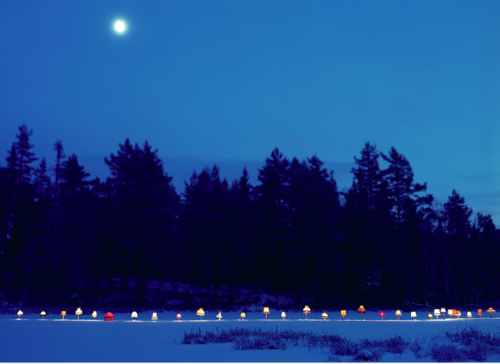after ruin
Beauty after ruin lingers on the event horizon: infinity plus one, a new monin echoing yesterday’s cataclysm, a confluence of aestheticisms climaxing into a new way of looking—: (in). Ruin does this and perhaps is evermore tied to beauty. In the pursuit of beauty there is always already a series of invisible vertical bars, the indented metal shadows streaming across your face, reminders of how you border yourself off, reduced to a subjugated human in a cell. Epiphany: human cannot divide its[self] into fragments, it just is, but you can’t just “be,” so you become subject/object of your own ridicule. Please note: the mind has the capability to step outside that which is perceived as a limitation to achieve a limitlessness. Societal structures shape these invisible bars that impetus how (us) move alongside earth’s rotation as oblique and skewed figures. The figure in the windowpane, chained to a way of seeing the [self], a mirror of distorted noise, is a recorded memory dictating an “event,” how the figure now bends the corner (event approaching), pushing against memory (event past), and what it produces: moments of reflection: hanging from a tree, swinging maple leaves bodily themselves against the moon’s half lunar light onto the glittering Sound. Language gives (us) tremolo-singing birds, stuck in suspended animation, staring down into a sheet of pitch-dark blue. Blowing like a flute, the gentile wind is an echo of things to come, and the afterimage of the figure(s) is that which will become, again and again: a repeated action.
sandy: aesthetic memory
Crashing in (always in), surge after surge from the difficult storm, four-foot whitecaps sing, “I wanna be closer than most,” to the edge of the New England coastline, which waits anxious, like a lover in need of remedy: to feel the baptism, the violent collision of Atlantic remnants, a union colligated to repeat itself, the terms incomplete. The wind increasingly rapid, carries faint echoes whispering “the glorious body of the event is a work of art,” of the unremembered—those stolen whose bones lay railroad track to (us): the last and beginning of another. Penetrating into the Sound’s crook, to empathize yesterday’s memory, to create new memory, a storm surge of memory, of bodily constrains—a man and a woman, skin color, (us): societies’ inescapable failure, but most of all, the aesthetics of the oppressed—a culmination. One could say the “event,” is the culmination of bodily experiences, albeit human or nature. Something within the eye of the storm ever-forming (myriad wind patterns), always, and so, this “event” (natural) mirrors the ever-forming body of language (human), created by multiplicity of voice, interaction, all that is (us). Trees bend submissive; branches, broken and splintered, litter the evacuated (erased) streets. Fast-fluttering maple leaves speak in tongues: to be free is to not speak free—just be. Threnody of sound coming off the Sound. Desolate, everything desolate and traumatic is the image. Traffic lights hang from thin cable, swinging red, green and yellow so as the wind goes. No dogs frolicking in salt water nor sniffling garbage cans, or just plain howling alongside the muscular gales. Gulls, redacted from flight, from piping new trajectories (for a second), are close by, unseen—humanity’s cue: respect the quite before the storm. Dear Writer, its funny how the cumulative process, the wind, our “past,” alters discourse for the sake of the repeating narrative. The poet Christopher Stackhouse posits that “an artistic event is the becoming form/something that was not." Say phenomena languages the event, something becoming from the mortality of those that claim is or to be at the expense of those conditioned by the social environment in which they live, to be ain’t, or not. Let us say the subject’s valuation is steeped in a series of events to determine or instigate new phenomena. Say the “new” is the “event horizon,” the pinnacle point through which aesthetic is born. There is always a dominant narrative to push through, to runaway from, as against.
Editor's Note: Don't miss "The Big Bang of Prose Poetry," Carol Dorf's introduction to prose poetry in TW.
 Randall Horton is the recipient of the Gwendolyn Brooks Poetry Award, the Bea Gonzalez Poetry Award, and, most recently, a National Endowment of the Arts Fellowship in Literature. Randall is a Cave Canem Fellow, a member of the Affrilachian Poets, and a member of The Symphony: The House that Etheridge Built.
Randall Horton is the recipient of the Gwendolyn Brooks Poetry Award, the Bea Gonzalez Poetry Award, and, most recently, a National Endowment of the Arts Fellowship in Literature. Randall is a Cave Canem Fellow, a member of the Affrilachian Poets, and a member of The Symphony: The House that Etheridge Built.
Randall is an assistant professor of English at the University of New Haven. Roxbury, a chapbook excerpted from his memoir, has been published by Kattywompus Press. Triquarterly/Northwestern University Press will publish his latest poetry collection Pitch Dark Anarchy in Spring 2013.

